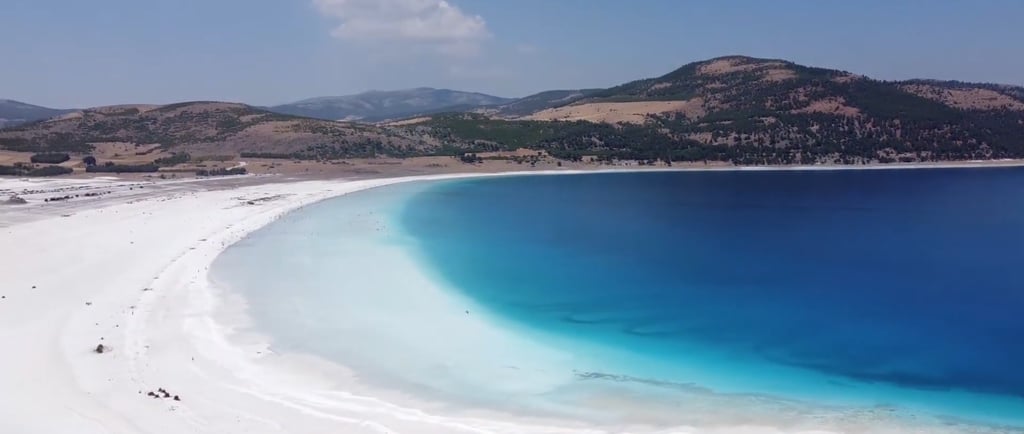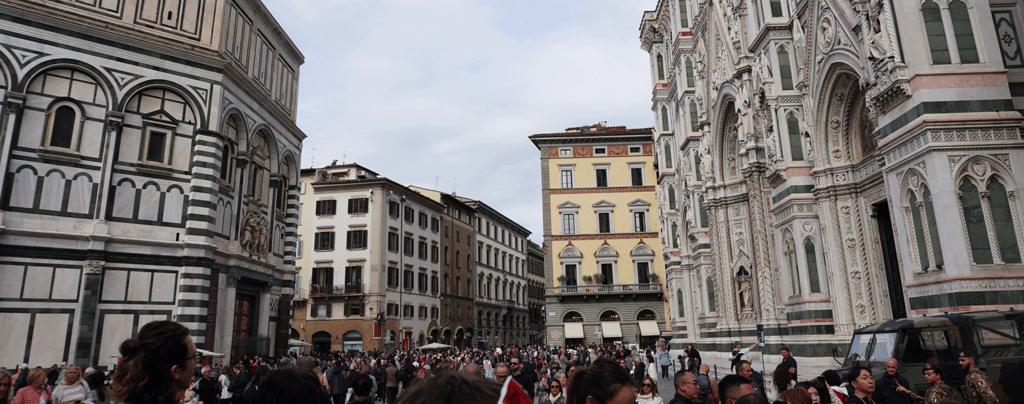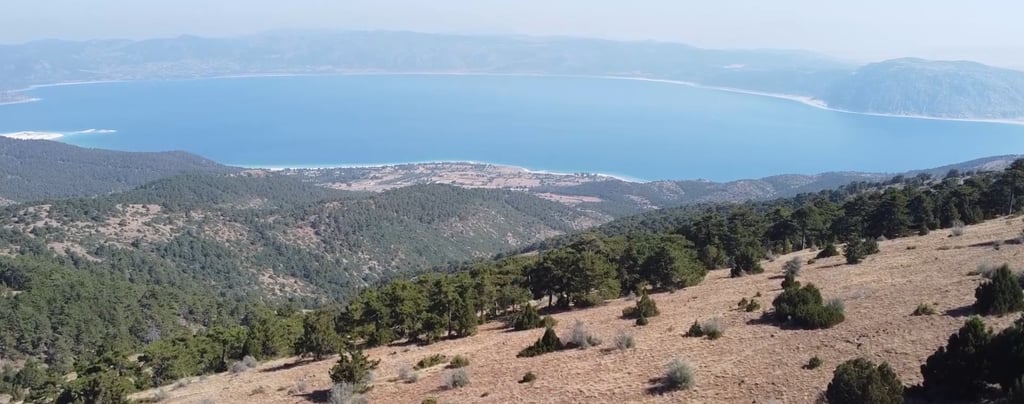Is Travel and Tourism Content Ethical?
The democratisation of travel is a double-edged sword. While it allows more people to explore new horizons, it creates many problems, including housing and infrastructure.
TRAVELJOURNALISMSTORYTELLING
Ali Halit Diker
11/21/20244 min read


Is there really a paradise on Earth? Is paradise on Earth for some, hell for others? When my wife and I first visited Lake Salda, we genuinely thought it was a heavenly place that was not of this world. We were kind of correct, too. NASA recognises Lake Salda as the only geographic region on Earth with the same features as Jezero Crater (Jezero means “lake” in several Slavic languages) on Mars. The space organisation has studied the lake since 2019 to comprehend more about the Red Planet’s geography and climate. So, describing Salda out of this world is accurate at some level; still, it’s on Earth; it is unique, delicate, and needs protection. Unfortunately, flowing tourists don’t help with the last part. Also, the hyperbolic language doesn’t help raise visitors’ awareness.
Strolling around the lake, we noticed a lot of rubbish we wished wasn’t there and immediately pulled back into reality. We, as humans, will destroy this natural beauty because of commercialisation. What the hell is a used diaper doing on a lake shore?
The Problem with Hyperbolic Language
Exploring the world, discovering new places, and learning about different cultures are exciting—there is no denying that. This excitement is the reason we named our YouTube channel Trip to Euphoria. When you scroll Instagram, TikTok, YouTube, or wherever you get your travel inspiration, you stumble upon phrases like “Is this the most underrated place in [insert a region here]” or “Fairy-tale towns in [a region].” The content creators could genuinely mean those words. I can believe it because sometimes I feel the same way.
When I saw the misty sunrise in San Gimignano, the best word to describe how I felt was “enchanting.” It was a “magical” moment for me. But, it was a moment nonetheless, which doesn’t reflect the overall experience of living there. I don’t know how it feels being a local. So, I should’ve picked more careful and respectful words. Because the hyperbolic language, even though it was not intended to harm, could harm. It separates the experience from reality for the sake of likes, comments, saves, and whatever the algorithm praises. Also, it manipulates the travellers’ expectations. That’s why “Instagram vs. Reality” and “Expectations vs. Reality” trends exist. Still, these trends are not as widespread as the ones using hyperbolic language. Also, these contents don’t increase awareness and are mostly just for laughs and engagement. They don’t contribute to stopping nor decreasing overtourism and its adverse impacts on residents.
Overtourism and Commercialisation


The democratisation of travel is a double-edged sword. While it allows more people to explore new horizons, it creates many problems, including housing and infrastructure. One of the cities facing these challenges I visited recently, in October 2024, is Florence.
My wife and I went to our hotel’s lobby for breakfast the next day after check-in and suddenly recognised a pungent smell mixed with an air freshener odour. I guess the receptionist realised our facial expressions and explained the reason for the stench. It was the sewage. The system is not advanced enough to accommodate the city’s influx of temporary residents. Of course, the problems don’t end there. While the abundance of Airbnb rentals provides convenient accommodation for tourists, it causes a housing crisis for residents, displacing local communities and deteriorating the authenticity of the Renaissance’s epicentre.
High costs don’t only affect inhabitants, though. Paying €10 for a distasteful espresso—seriously, it was terrible; not even ‘not good’—just because you have a Republic Square view was not an experience I could suggest. I won’t give names, but people who have been there know.
What’s worse, according to a recent article published in The Florentine, Florence is on the verge of losing its title as a UNESCO heritage site because of the complications overtourism causes. Salda faces similar issues but on the environmental side. The lake made it to the International Commission on Geoheritage’s (IUGS) Top 100 Geological Heritage Sites in 2024. This is a positive development, but the experts are still concerned about its conservation because the area is still highly commercialised. It became excessively popular after a couple of Turkish travel influencers promoted it a few years back.
Lake water levels have decreased by 4.6% in the last 40 years, according to a report by researchers from Istanbul Technical University and Namik Kemal University published in 2023. Decreasing water levels is not directly caused by tourism, but surely, it doesn’t help preserve this unique gem. While roaming the shore, we stumbled upon a few kids telling us where we walked used to be water just a few years ago, confirming the damage done by the lack of attention and protection. So, Salda could be removed from the IUGS list as Florence is threatened with losing its title as a recognised cultural heritage site by UNESCO.
The Responsibility of Travel Content Creators


I’m not saying that travel content creators are the reason for overtourism and related issues, but we must acknowledge the part we play. To change things, we can start by paying attention to our language, word choices, and narrative. Even though we are sincere, as in the example I provided, we should emphasise that our experience is usually limited and cherry-picked. We must remind our audience that real people with real problems live in those “fairy-tale villages” or “the most underrated places.” We shouldn’t add to their challenges but try to be part of a solution. How? I don’t have the answers, but I believe I am asking the right questions and raising real concerns. This Earth belongs to all of us, and we should do everything in our power to protect it to bequeath better than we found it.
Maybe we can start by promoting sustainable tourism, encouraging people to support local businesses rather than multi-billion-dollar enterprises, focusing on authentic experiences, and depicting stories of native residents and their daily struggles. Otherwise, we create disappointed travellers and even more upset locals. Seriously, who leaves a used diaper in one of the most beautiful places on Earth?
